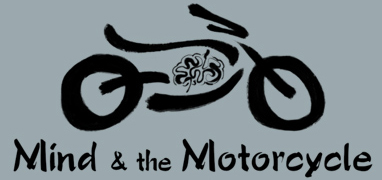
I confess to loving words, which shouldn’t be automatically construed that I am a reader, which I’m not. Yes, I read a great deal, but it is primarily on line, not the kind that involves something called a book. Throughout my professional career, if you can call it that, I have always gravitated to marketing, one of those words with too many meanings, which is the essence of the discipline in the first place. It is the shortest kind of poetry, a couple of words, able to ignite the imagination.
One of my online pleasures is a site called BrainPickings. Every Sunday morning, I take a breath, clear my mind and pretend I am far brighter than I actually am. Its architect is a lady with an extraordinary, literary encyclopedia, brilliantly filed between her ears. Over the millennia, there have been a plethora of gifted souls, with an uncanny ability to use language to take us to places we never imagined exist, often inside ourselves.
Last Sunday, a couple of words kidnapped my mind and I was instantly certain they would ground whatever story I wanted to share with you next. The author is Mary Caroline Richards and I share her name, because it’s simply the right thing to do. She peppered a single sentence with two words, pain and paradox. I have a thing for alliteration, often used as a marketing ploy to motivate us consumers. Instantly, I felt a silkiness to their sound pairing, but more importantly, it hit me square between the crosshairs of my Zen centric mind.
The heart of Zen defies logic and has no real vocabulary, words ultimately teasing meaning. Eventually, you run out of words and those two were close to the marrow of this way of engaging the world. I was already primed, because of reading about more and more suicides, ones by famous and semi-famous individuals, who are the ones deemed worthy of attention. These public tragedies quietly testify to a growing crisis, which I have read about. Very often, the euphemism for this spiritual catastrophe is that someone died of natural causes or no foul play was suspected. The idea that someone’s suffering is so excruciating, making death the only remedy for life, breaks my heart.
Sharing this dilemma of pain and paradox, became unavoidable after a conversation with Eiju. He is an Argentine born, Zen priest I met when I first moved to Kauai around sixteen years ago.
I had a fairly active practice when I lived in New Mexico and thought I needed some structure, beyond my own, private relationship with the Buddha. We have stayed in touch all these years, periodically catching up electronically, as he left here long ago. It had been a while since our last conversation and this time, we actually spoke, being able to see each other. It was incredibly touching to see my friend and I cried often throughout. I still have trouble believing a priest would actually consider me an equal, which he does. Eiju starts out with the mind and soul of the Buddha and ventures into the world from that grounding. I begin on the absolute other side, a virtual heretic, who stumbles forward, ultimately and accidentally falling into the heart of the Buddha.
In this life, no matter who we are, it is a bitch to deal with its fickle nature. When we are happy, we tighten our grip, trying to hold on to it. When we are sad, we think it will last forever. Death scares the shit out of most of us, while ignoring it, increases the quiet terror it engenders. If we were able to understand our mortality, many of our choices would be impacted. The larger the ego, the greater the disconnect from the inevitable. This is a race we cannot win, no matter how fast we run or how much we accumulate.
Supposedly, when Siddhartha left the palace, he was overcome by all the suffering he witnessed and that’s what set him on his path. He realized it was the craving for what we didn’t have and/or our crippling desire to hold on to whatever we had that causes such pain in us all.
The meanest trick we play on ourselves is thinking that in the midst of all of this incalculable change, there is something called the enduring self. Every thought and every feeling impacts the next thought and feeling and it slips through our consciousness faster than the speed of light. Who ever we are in one moment is not who we are in the next. The inability to embrace all of this is what leads so many beautiful people to the edge of the abyss and causes the terribly delicate to collapse into it.
So, yes, pain is unavoidable in this life and the paradox is that our salvation is to give into it, but not be vanquished by it. When we are constantly looking, we don’t embrace where we are and who we are.
This too shall pass.

As Phob Dem consistently reminded us on our “journey” through Bhutan, life is impermanent. ” This too shall pass” is one of my favorites as well as “remember man that you are dust and unto dust you shall return” from the Catholic ritual… so don’t take this life too seriously or maybe you’ll miss it? Your perception of reality is actually your reality in every sense.
Thank you for sharing your journey through Bhutan. What we experience and how we experience is all there is.